Facts About World War II Even History Buffs Might Not Know
World War II was a gruesome war between the Axis and Allies, but the history books didn’t tell the whole story. Here are some unbelievable facts and stories about World War II that you have likely never heard before. Which one surprised you the most?
Read on to learn about the new name that hamburgers received during the war…
Coca-Cola, the Drink of Soldiers

To help strengthen morale among American soldiers, General Eisenhower worked with Coca-Cola to bring a little piece of home with them to the front lines. For five cents, a soldier could buy a bottle of Coca-Cola.
This led to Coca-Cola building 64 bottling plants in North Africa! The plan was a success; soldiers were excited to see a Coca-Cola bottle with their rations.
John R. McKinney, Army of One
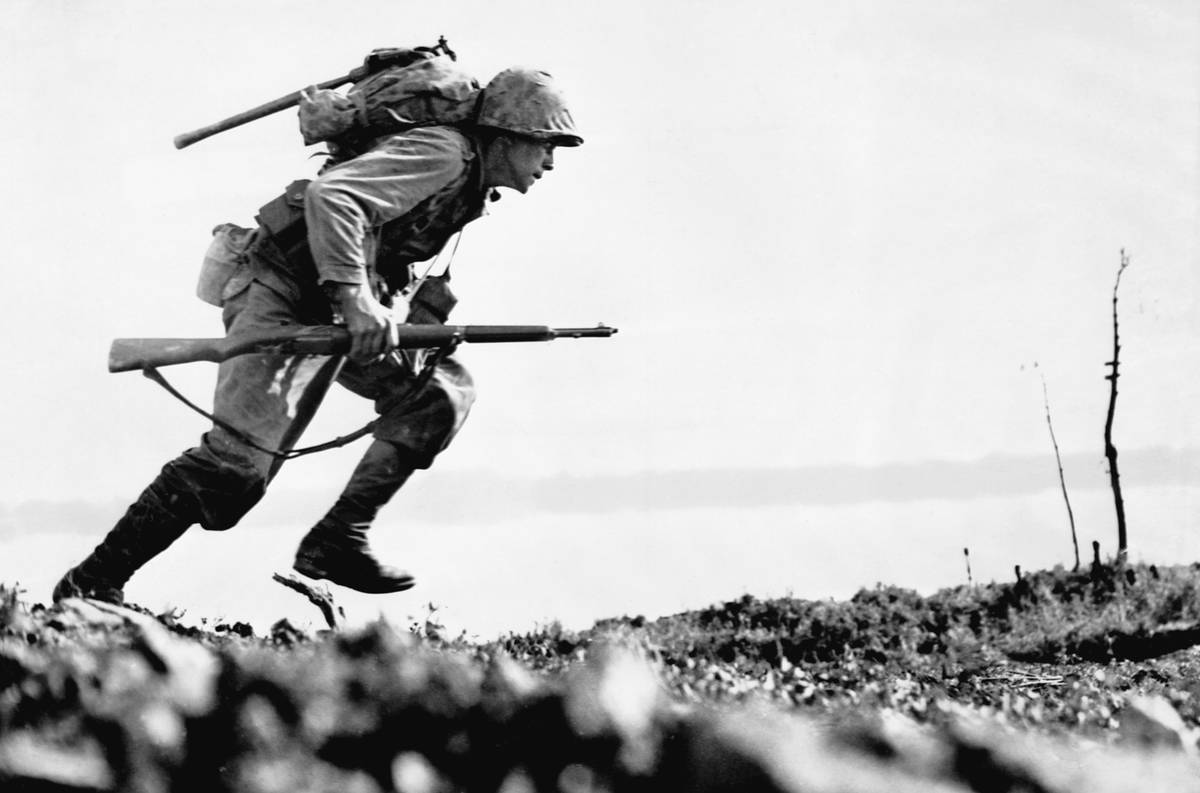
American soldier John R. McKinney was attacked while on guard duty in the Philippines. 100 Japanese soldiers attacked his position, and surprisingly he withstood the attack with an M1 rifle.
Over the course of 36 minutes and two waves of fighters, McKinney killed 38 Japanese soldiers. He came out of the battle with a partially severed ear and received a Medal of Honor afterward.
Yang Kyoungjong, The Man Of Many Armies
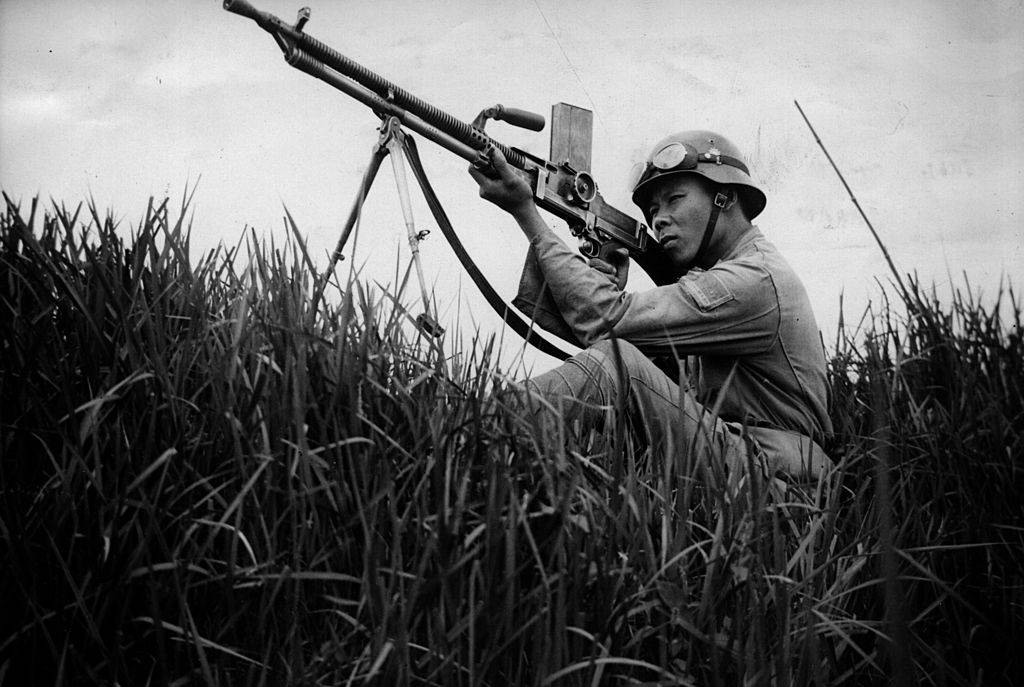
Because Korea was under Japanese rule, many Koreans fought for Japan. Yang Kyoungjong started the war fighting for Japan like his fellow Koreans.
He was then captured by the Soviet army and forced to fight for them. From there, he was captured by Germany and forced to fight for the German Wehrmacht. And at the war’s end, Yang was captured by the U.S. Army.
Betrayal In The Reich
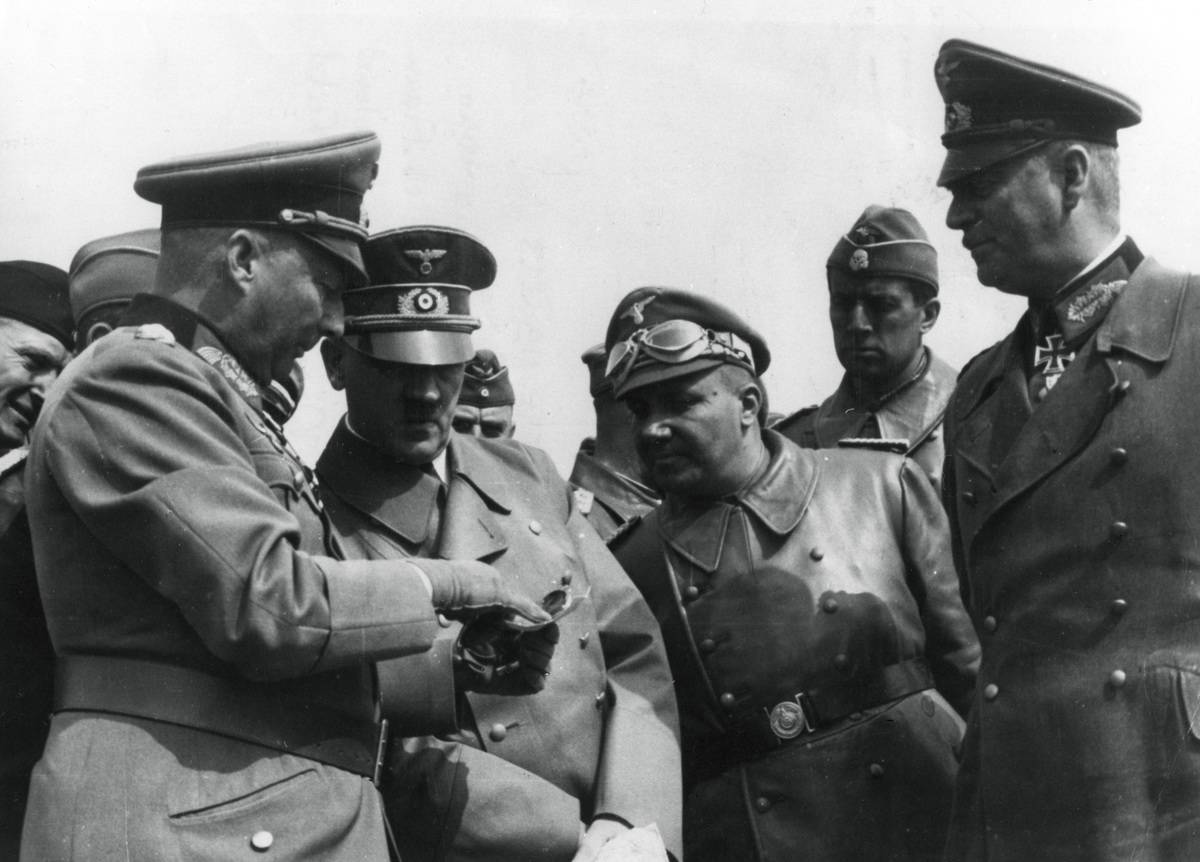
There were many assassination attempts on Hitler, and from within the Nazi regime alone, historians have discovered 42 assassination attempts.
It’s no wonder that Hitler executed no fewer than 84 of his generals throughout the war. The most notable Germans executed were those who were a part of the July 20th assassination plot.
Calvin Graham, Kid Navy Soldier
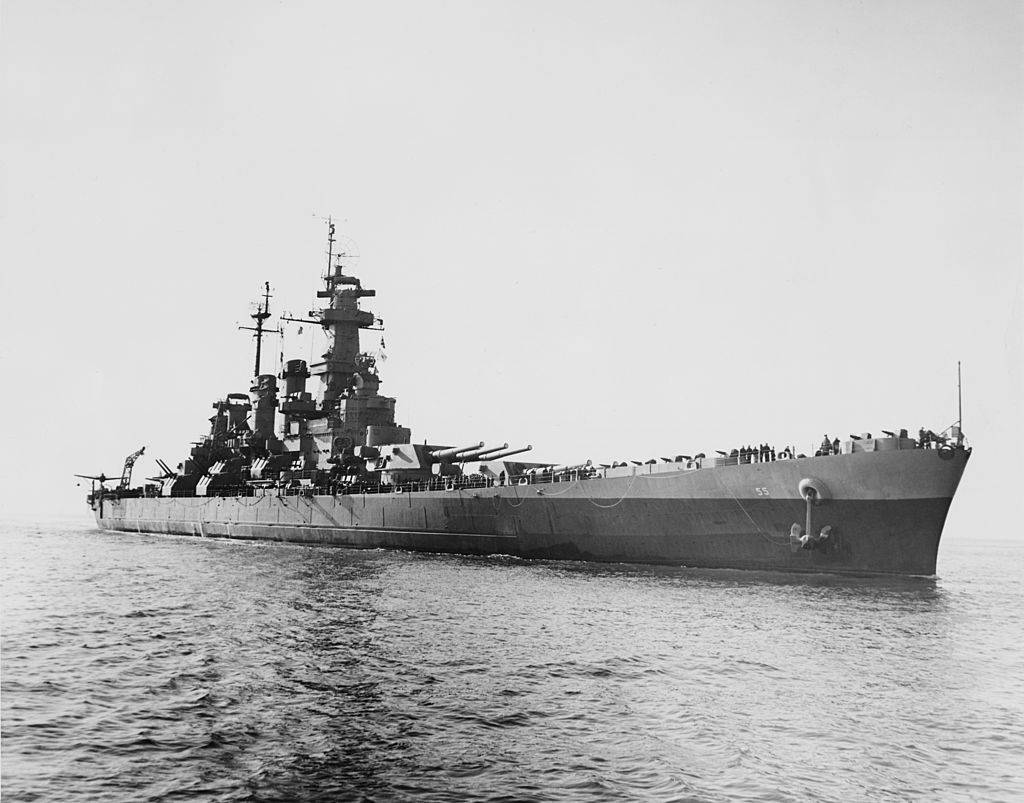
Calvin Graham wears the mantle of “youngest soldier in World War II.” This twelve-year-old from Crockett, Texas, joined the United States Navy and served on the battleship South Dakota.
Graham lied about his age, forged his mother’s signature and notary stamp, dressed in his older brother’s clothes, and spoke in a deeper voice to fool others. However, Graham was eventually discovered and discharged.
William Hitler, American Soldier
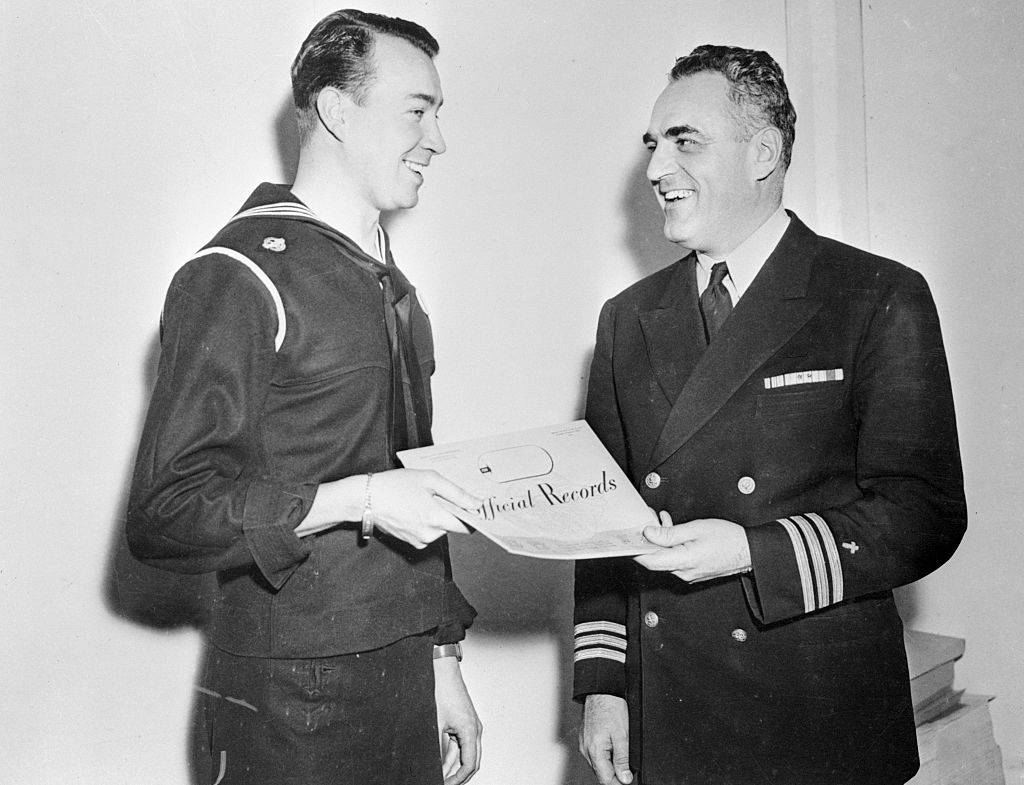
William Hitler was the half-nephew of Adolf Hitler. He was born in Liverpool, England. Before the war, he went to work for his uncle and tried to blackmail him into getting a high-ranking job within Germany.
However, he eventually immigrated to the United States, joined the US Navy, and was awarded the Purple Heart.
Japanese Spy Ring in Mexico
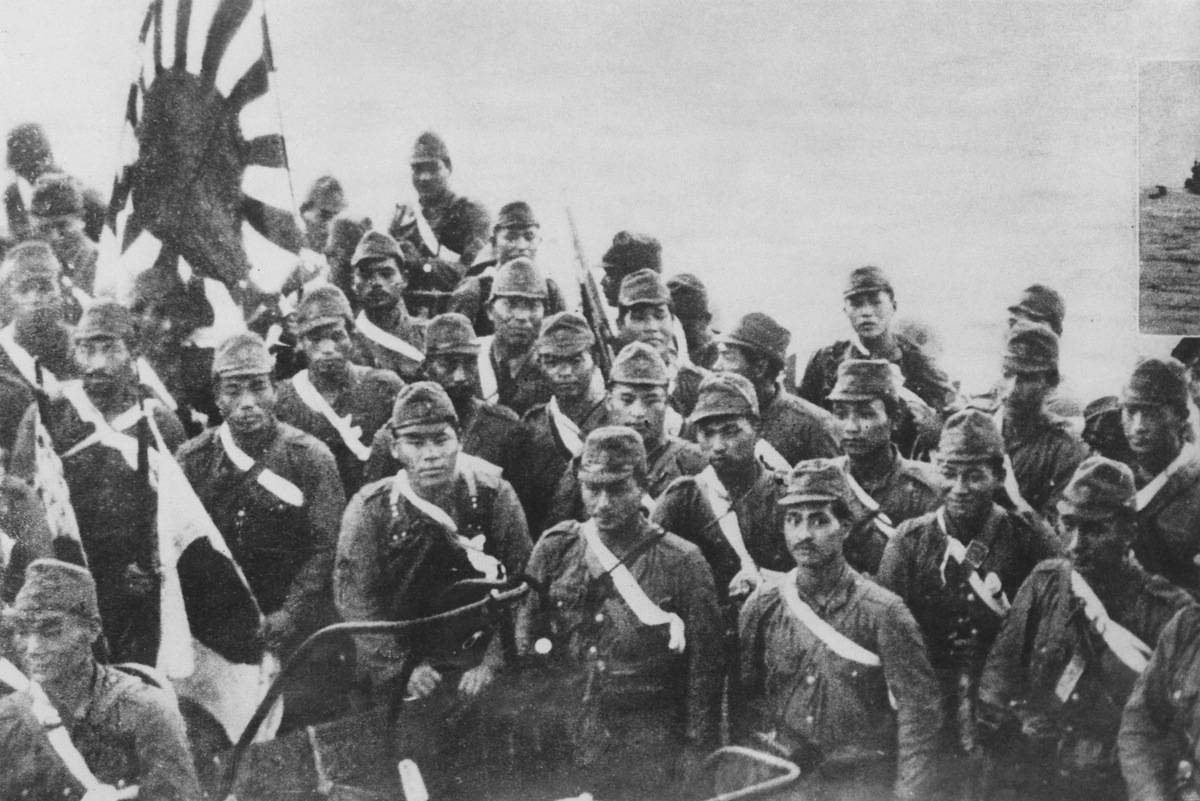
It was dangerous to be Japanese in America after Pearl Harbor, so Japan set up a spy network in Tijuana, Mexico, just 15 miles from the United States destroyer based in San Diego and the North Island Naval Air Station.
Japanese intelligence agents would meet under the Molino Rojo, a brothel in Tijuana’s Zone Norte – North America’s largest red light district.
Princess Elizabeth, The Mechanic
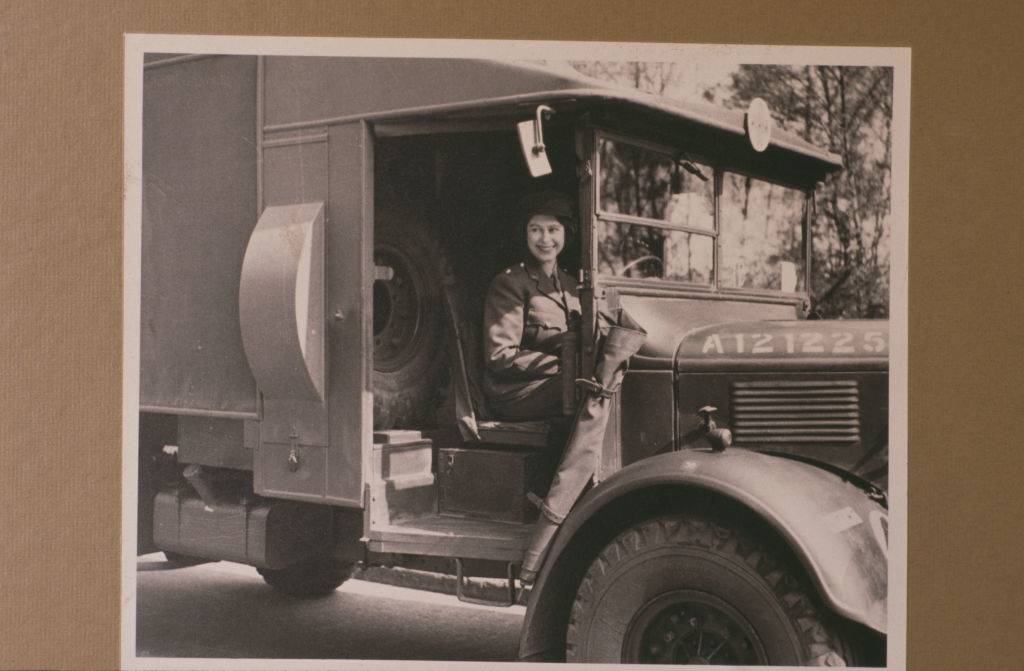
In 1944, the late Queen Elizabeth II (then Princess Elizabeth) turned 18 and joined the Auxiliary Territorial Service. Her father, King George IV, was against this, though, and believed Elizabeth should focus on training as a princess.
She was a driver and a mechanic, and It was hard and honest work for the princess, who had been dubbed by a reporter “Princess Auto Mechanic.”
Britain and France Fought Each Other During the War
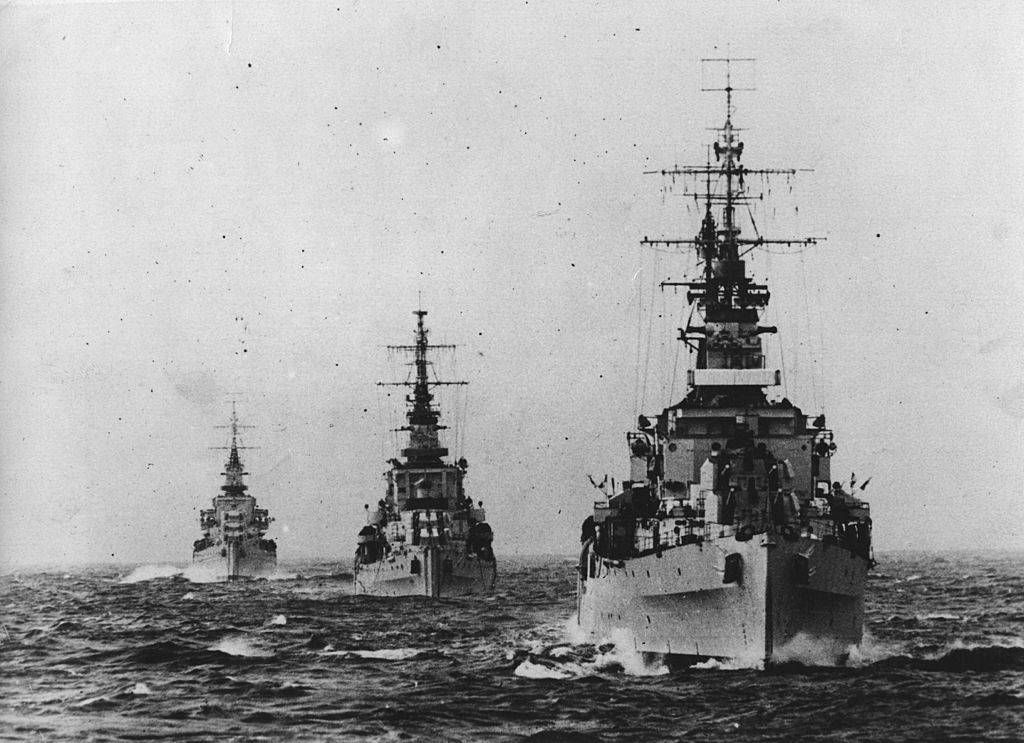
After France lost to Germany, they signed an armistice to separate German-occupied France from the unoccupied lands run by the new French government in Vichy.
Part of the armistice was an agreement that Germany would not touch the now neutral French Navy in the Mediterranean. But, Britain did not trust this, so on July 3rd, 1940, the British Navy attacked Mers-el-Kebir.
Germany Tried to Bug Britain

How do you weaken enemy morale? Attack the food supply lines. That was the Germans’ plan for England; the only question was “how?”
Their idea was to drop potato beetles in England; the bugs would destroy the crops and cause famine – the only issue was that they would need about 40 million insects for their plan to work.
Enemies to Friends For Life
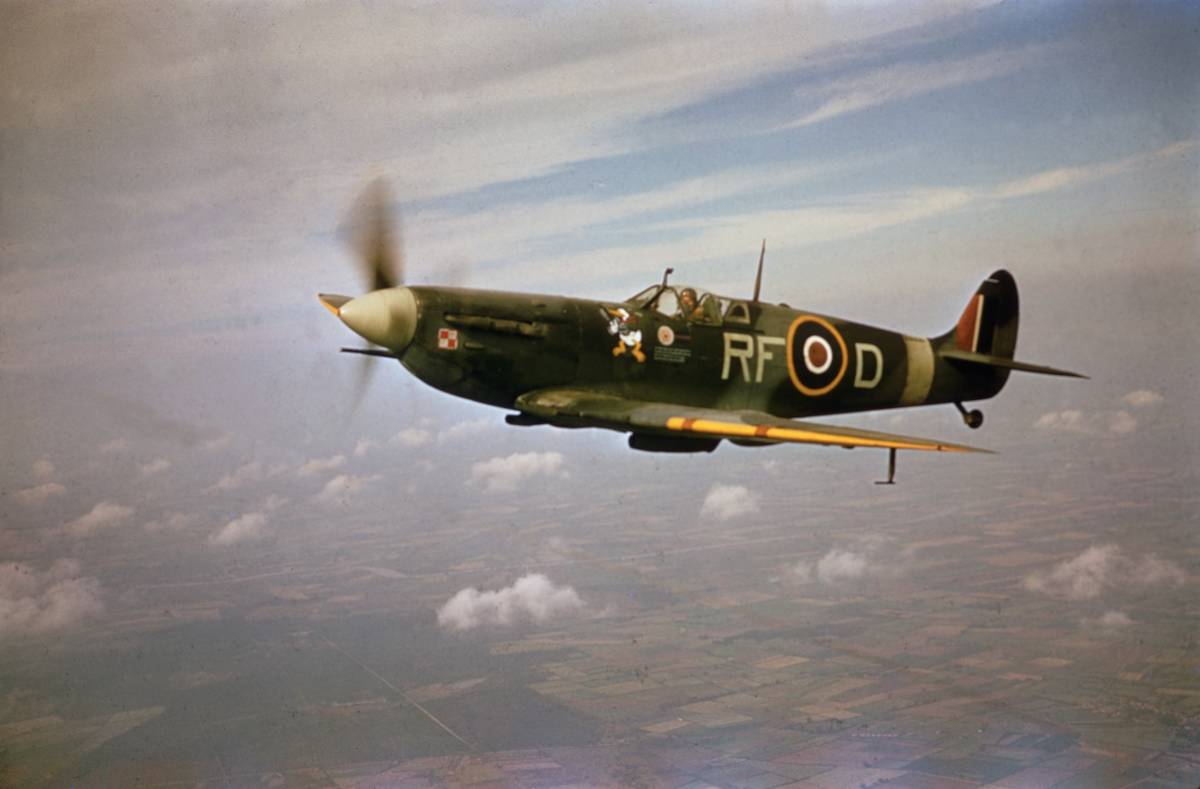
While flying his plane in December 1943, German pilot Franz Stigler saw a plane going down. This plane was a B-17, flown by American pilot Charlie Brown.
Instead of blowing it out of the sky, Franz led Brown towards Allied territory. Brown went looking for Franz when the war ended, and the two ended up being friends until they died in 2008.
Japanese Holdouts
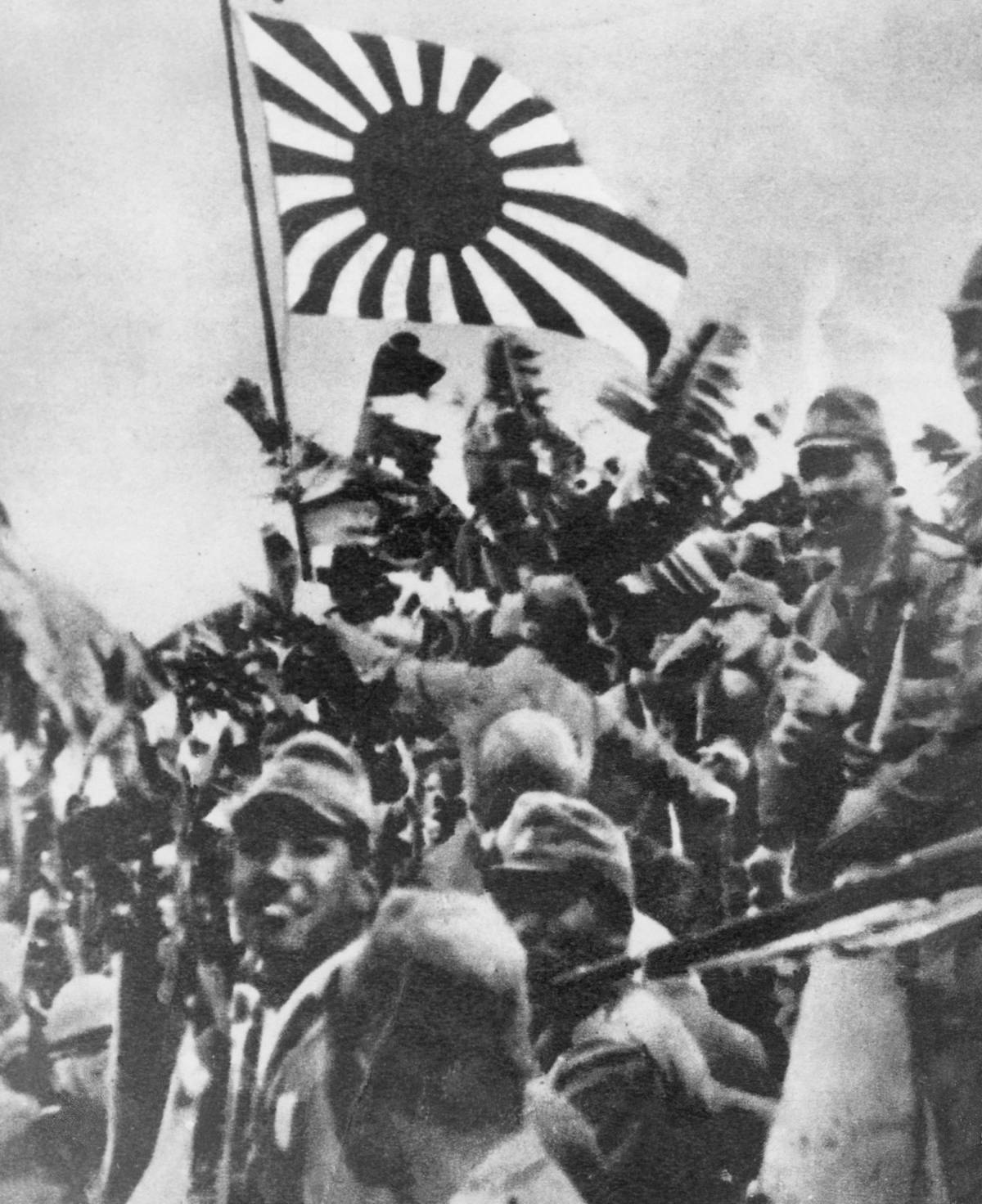
Japanese soldiers that were stationed throughout the Southeast and Pacific islands either did not believe in the validity of the Japanese surrender in 1945 or did not hear about it.
For the next two and a half decades, Japanese soldiers were found hiding in caves and huts as they fought with local police forces and US and British forces who were trying to help establish new governments.
Hiroo Onada, The Man Who Didn’t Stop Fighting
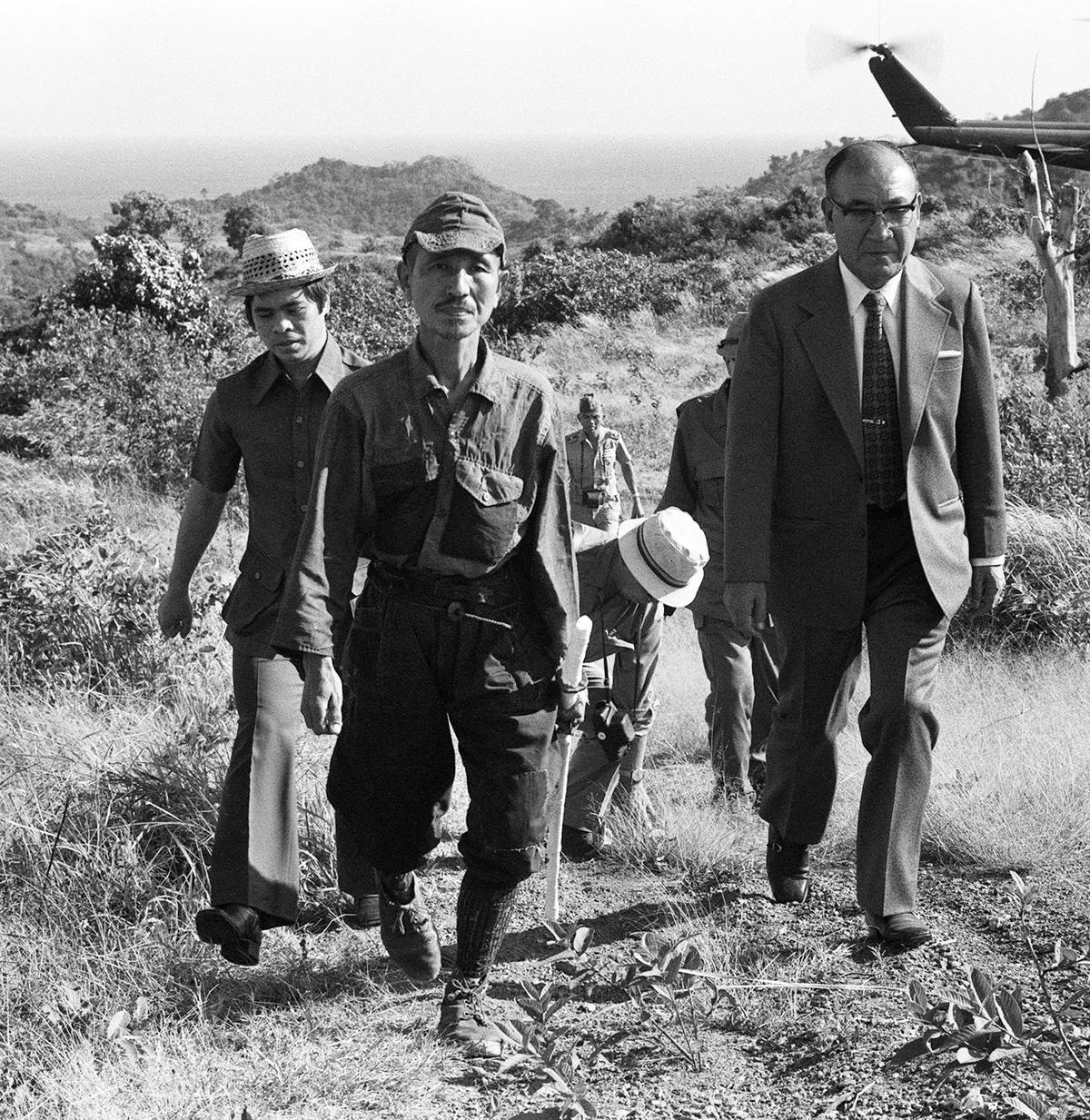
Hiroo Onada was a Japanese intelligence officer and holdout who continued his service while hiding in the Philippines by using guerilla tactics and harassing locals.
Onada refused to believe leaflets and the locals that said: “the war was over.” In 1974, as per Onada’s demand, his commanding officer had come to his hideout and relieved him of duty.
Teruo Nakamura, The Last Japanese Soldier
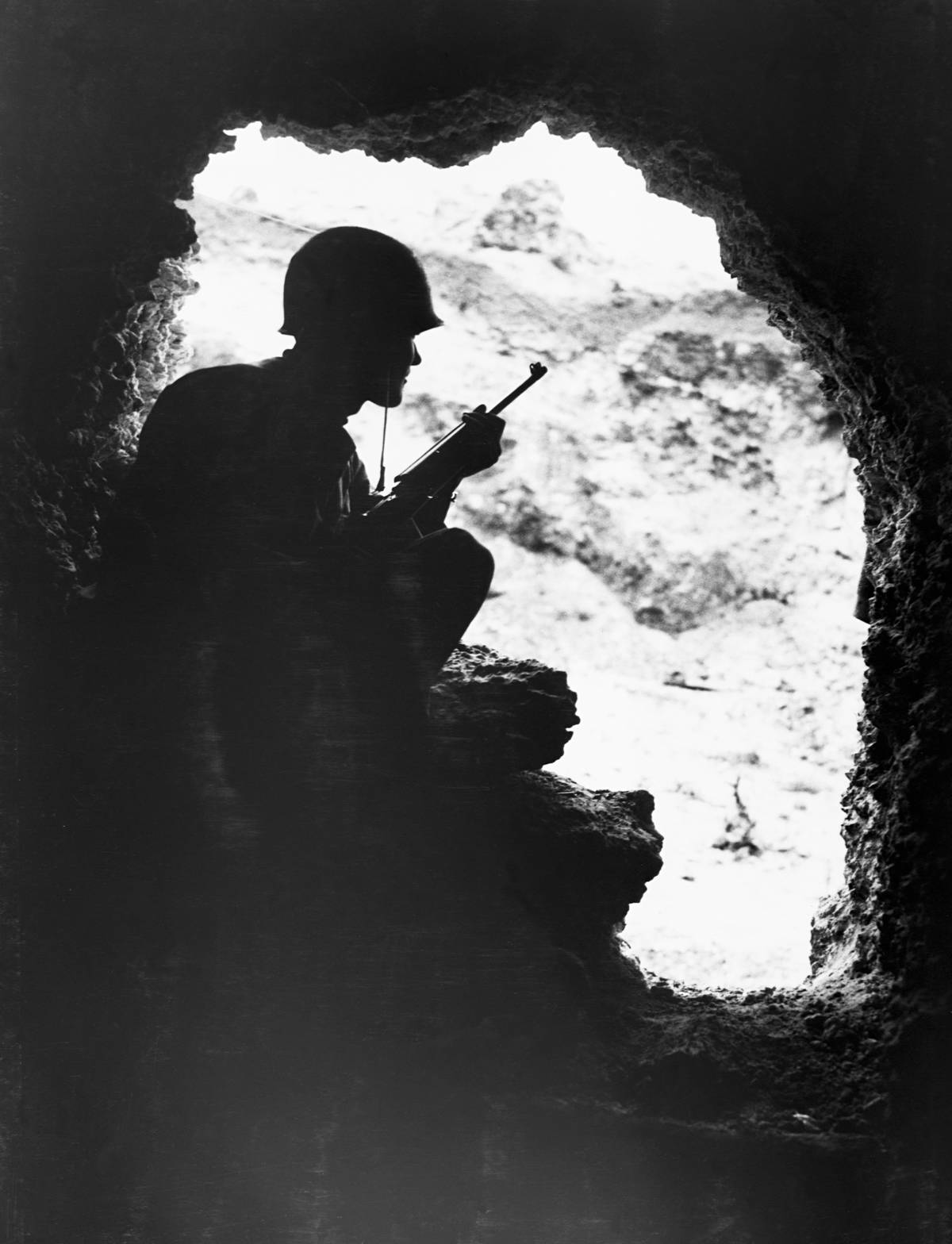
Teruo Nakamura was a Japanese soldier stationed on Morotai Island. He was believed to have died in the Ally attack in September 1944.
However, he survived and was in hiding until 1974. That’s when a pilot accidentally found his hut on the island. Nakamura was the last Japanese holdout from World War II, being found 29 years and 107 days after the war.
The Axis Death Ray
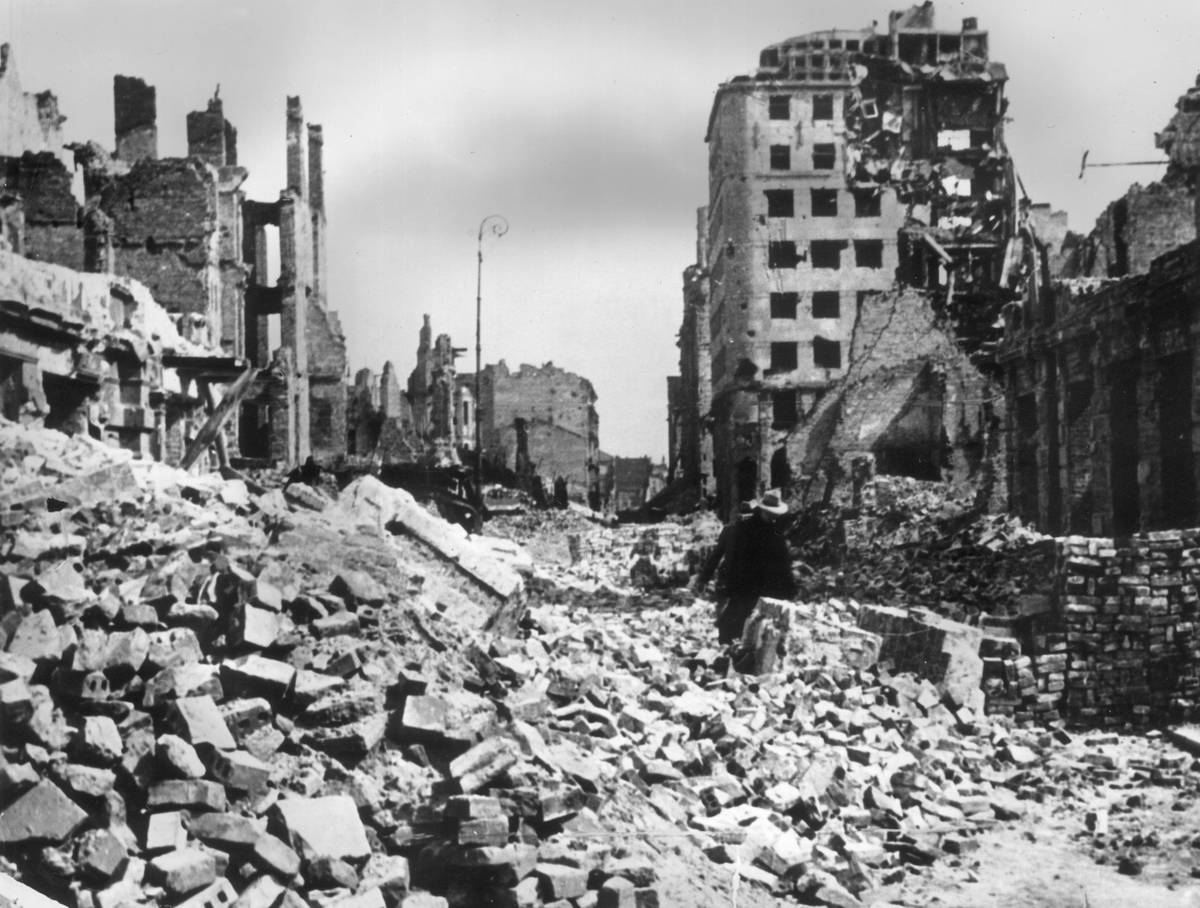
During the war, both the Allies and the Axis had crazy ideas for inventions to take on the other side. Both Axis powers, Germany and Japan, had projects in the works for a Death Ray.
One of Germany’s death ray projects needed a particle accelerator, while the Japanese death ray required a magnetron. It’s safe to say, though, that none of their death ray plans panned out.
The Japanese Pilot Who Was Welcomed By US Citizens
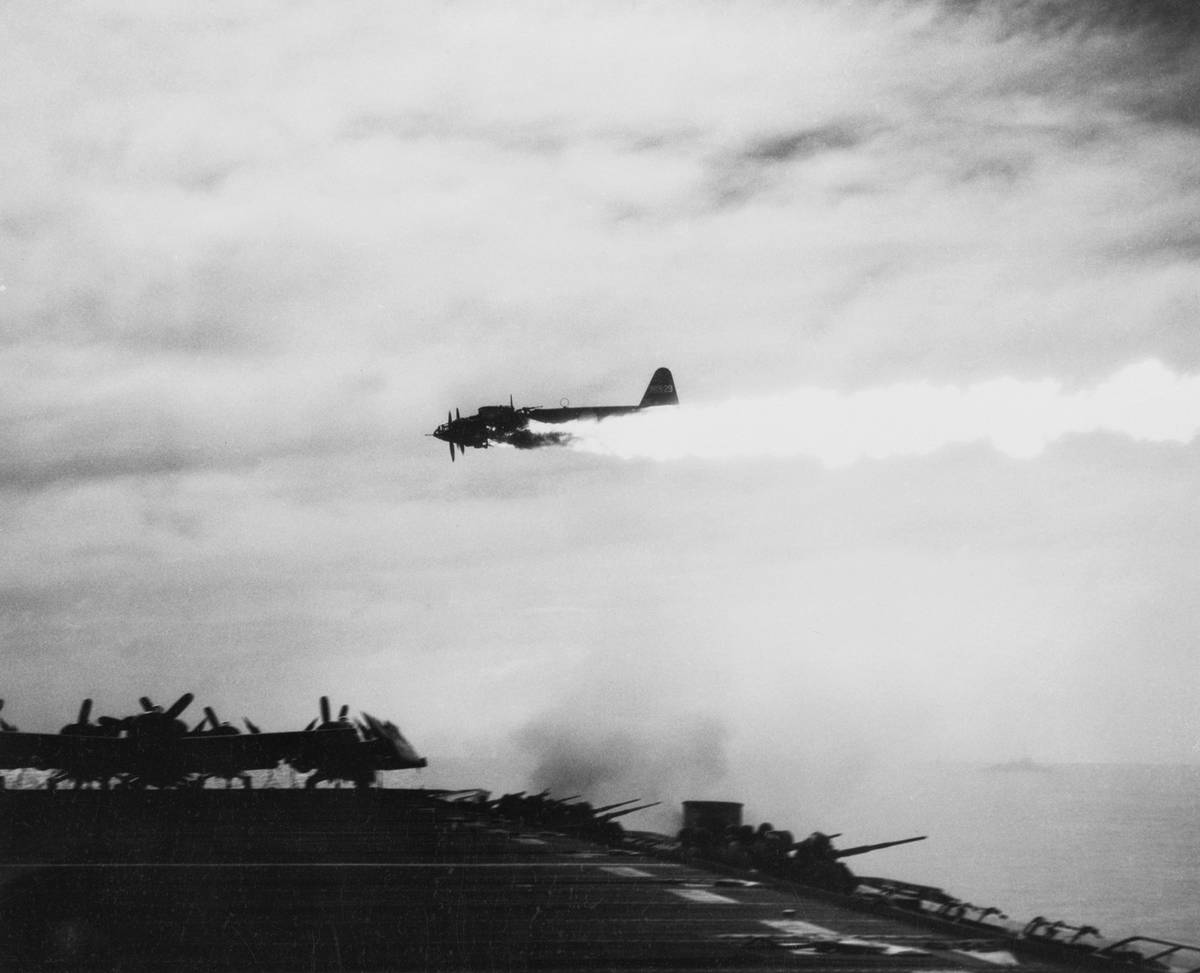
Shigenori Nishikaichi took part in the attack on pearl harbor. However, his airplane was damaged during the attack, so he flew his plane and crashed onto the island of Ni’ihau.
There, the locals had not heard of the attack yet and welcomed Shigenori with open arms. When the locals heard what happened, they imprisoned Shigenori. Later, a fight took place, and Shigenori was killed.
Hitler’s Train, The “Amerika”
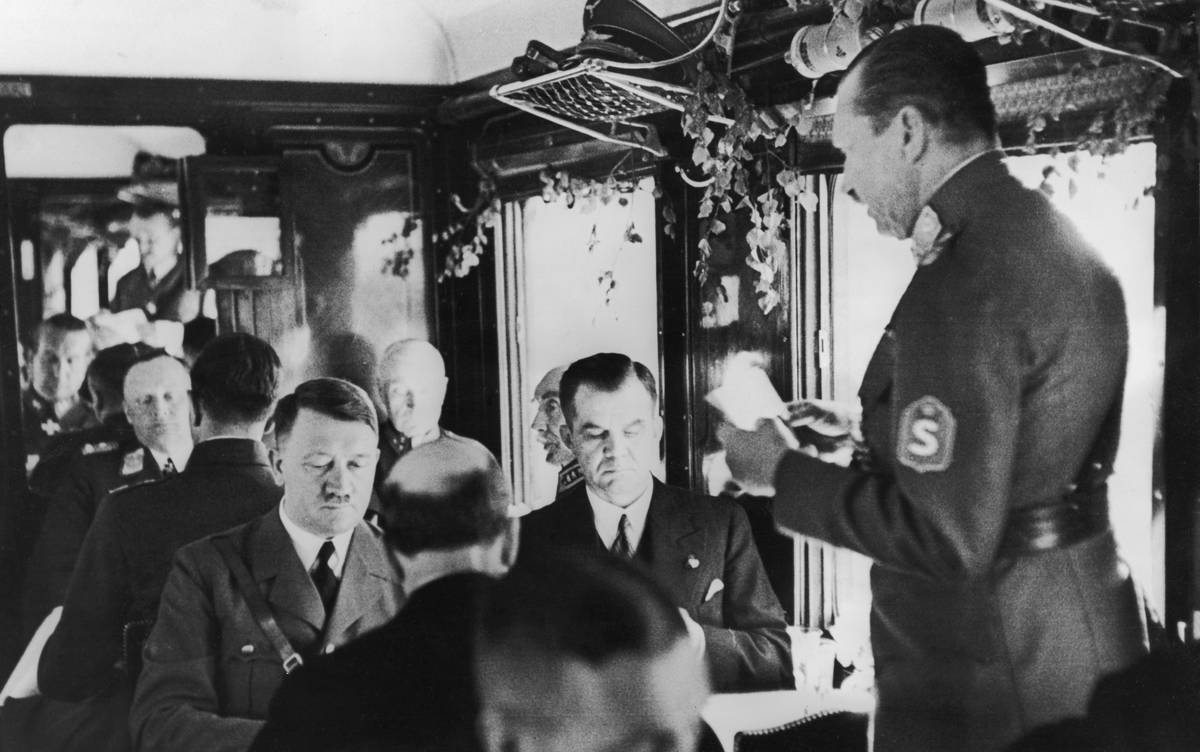
Before setting up a permanent base of operations, Adolf Hitler traveled around in his private train and used it as a mobile headquarters. The train had a conference car, escort car, dining car, and two sleeping cars and was codenamed “Amerika.”
Hitler eventually changed the name of the train to “Brandenburg” in 1943.
George Elser, Assassin Carpenter
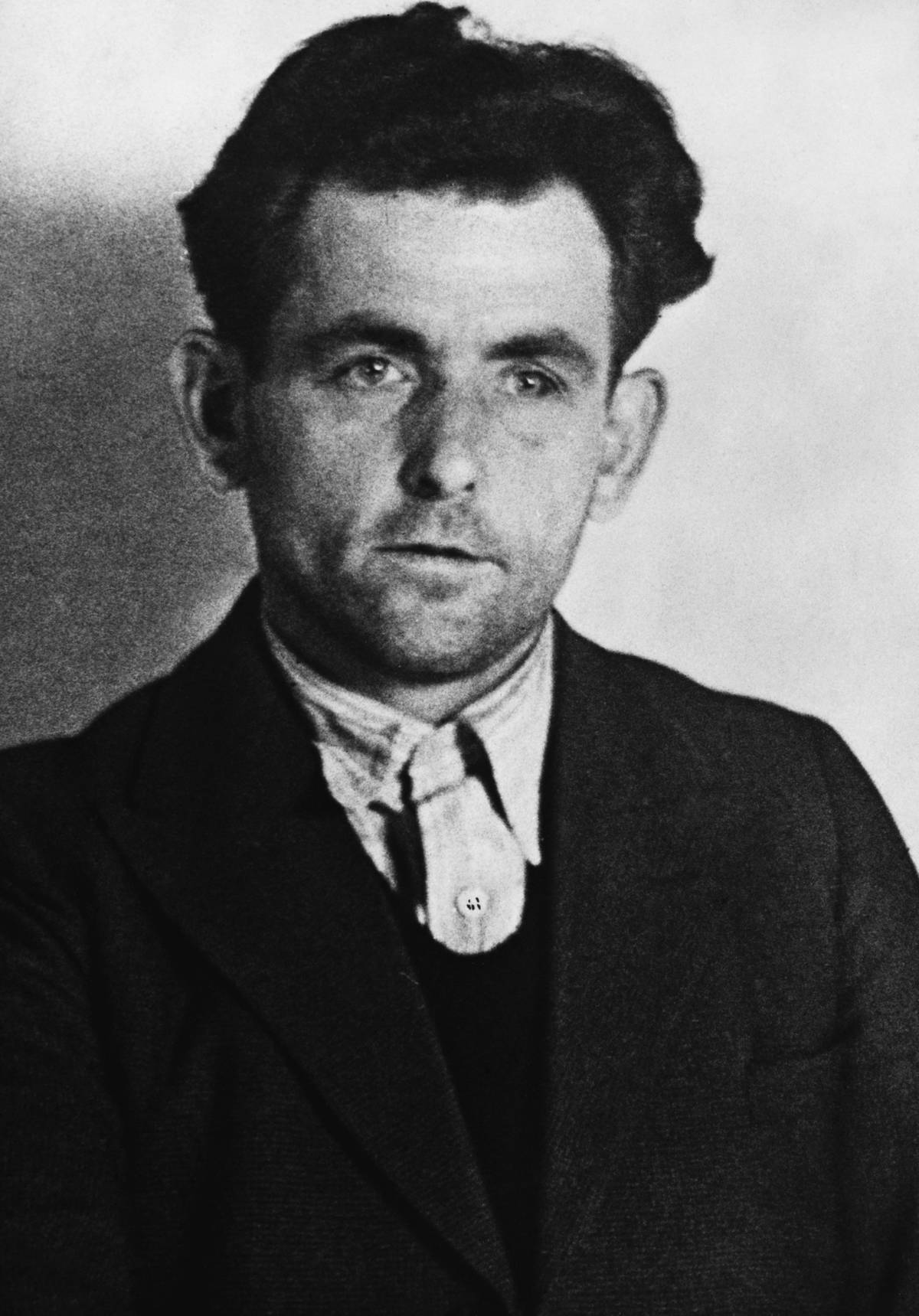
George Elser, a German carpenter, attempted to assassinate Hitler and other German Officers at the Burgerbraukeller in Munich on November 8, 1939.
Elser’s weapon killed eight and injured 62 but did not kill Hitler because he had left early. Once soldiers found Elser, he was placed in Dachau concentration camp, where he stayed for five years until he was executed.
Dr. Hans Münch, The Good Man of Auschwitz
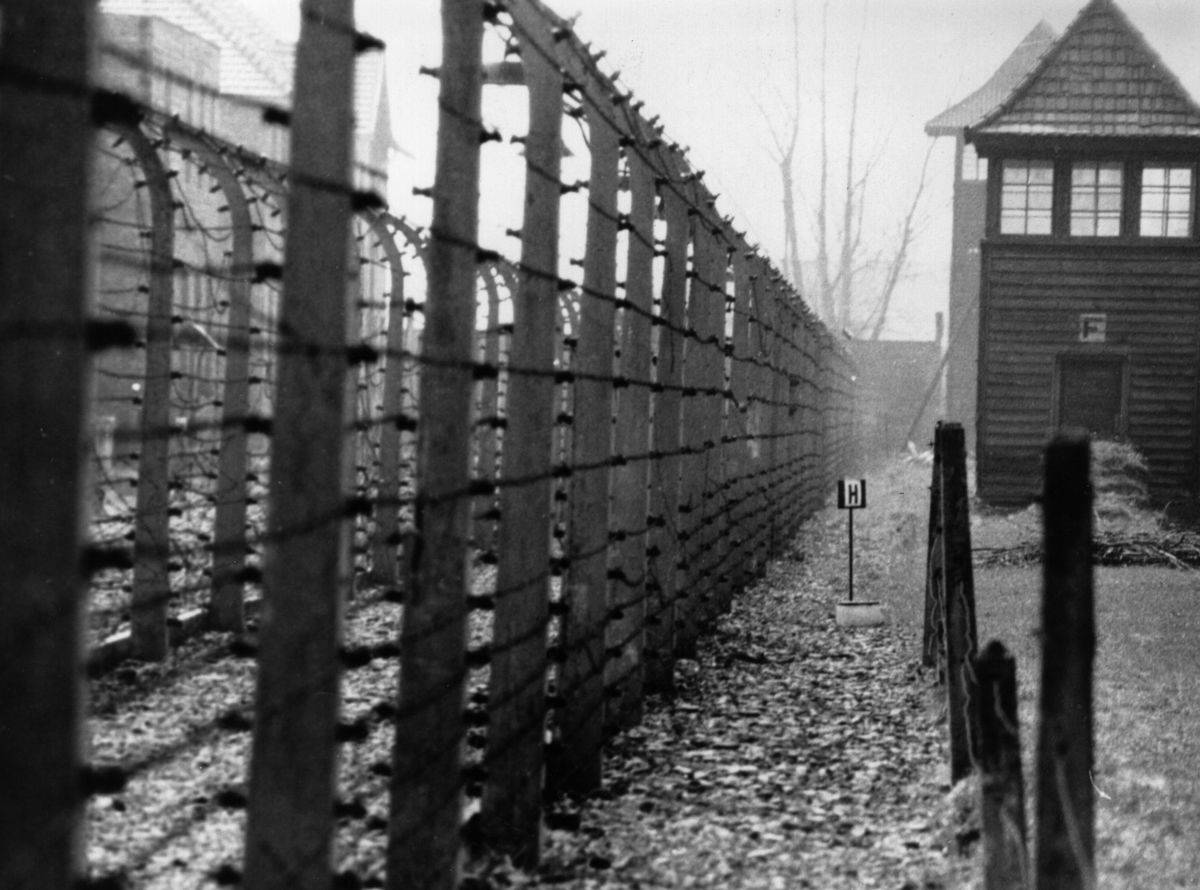
Dr. Hans Münch was one of the 40 prominent members on trial at the Auschwitz Trials. However, he was the only one acquitted of all war crime charges because he refused to partake in killing anyone in Auschwitz.
Münch would always find excuses or make elaborate ruses to keep prisoners alive. And to his benefit, many prisoners testified in his favor.
SS Cap Arcona
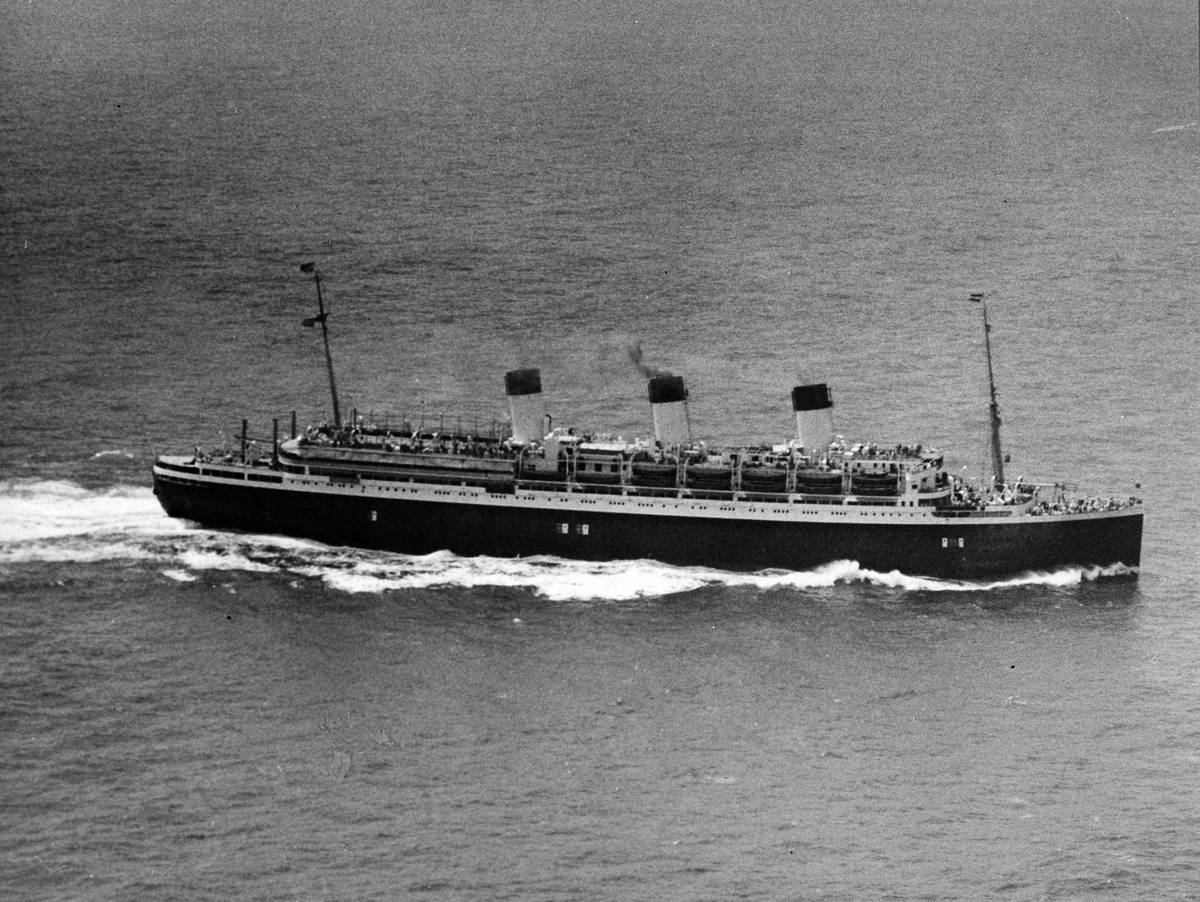
The SS Cap Arcona was a German Ocean liner that had served many purposes during the war. In 1942, the ship was used as the Titanic in a German propaganda film.
In 1945, it was carrying concentration camp prisoners from Germany. However, British intelligence believed it was carrying German high command, so the Allies bombed the ship. There were 5,000 killed on the Arcona and 2,000 killed on the ships accompanying it.
The Battle of Stalingrad
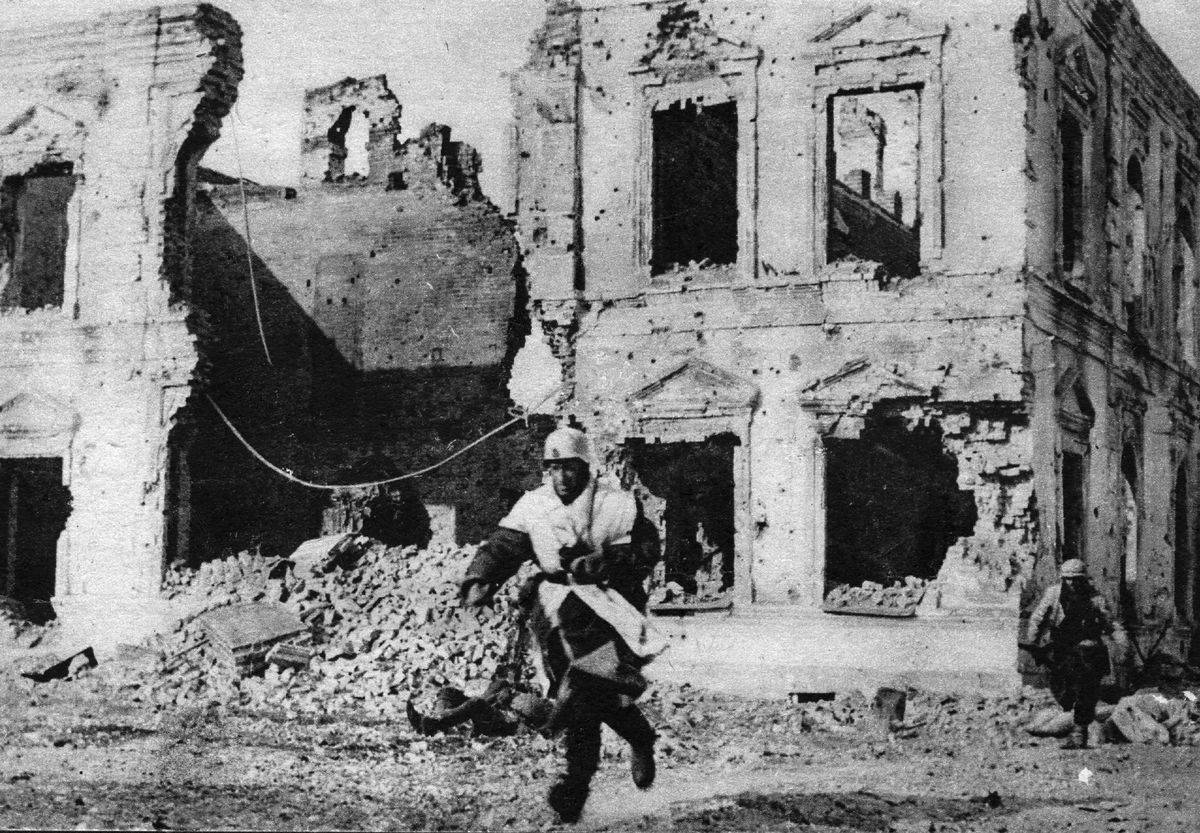
The Battle of Stalingrad was the bloodiest and most significant battle during World War II. In hopes of gaining access to the oil fields in the Caucasus, Hitler attacked Stalingrad in the summer of 1942.
On February 3, 1943, after months of back and forth fighting, the Soviets defeated the Nazis. Though at a cost – 1.1 million Soviet soldiers were killed, and between 650,000 and 868,000 Nazi soldiers were killed.
Mildred and Arvid and The Red Orchestra
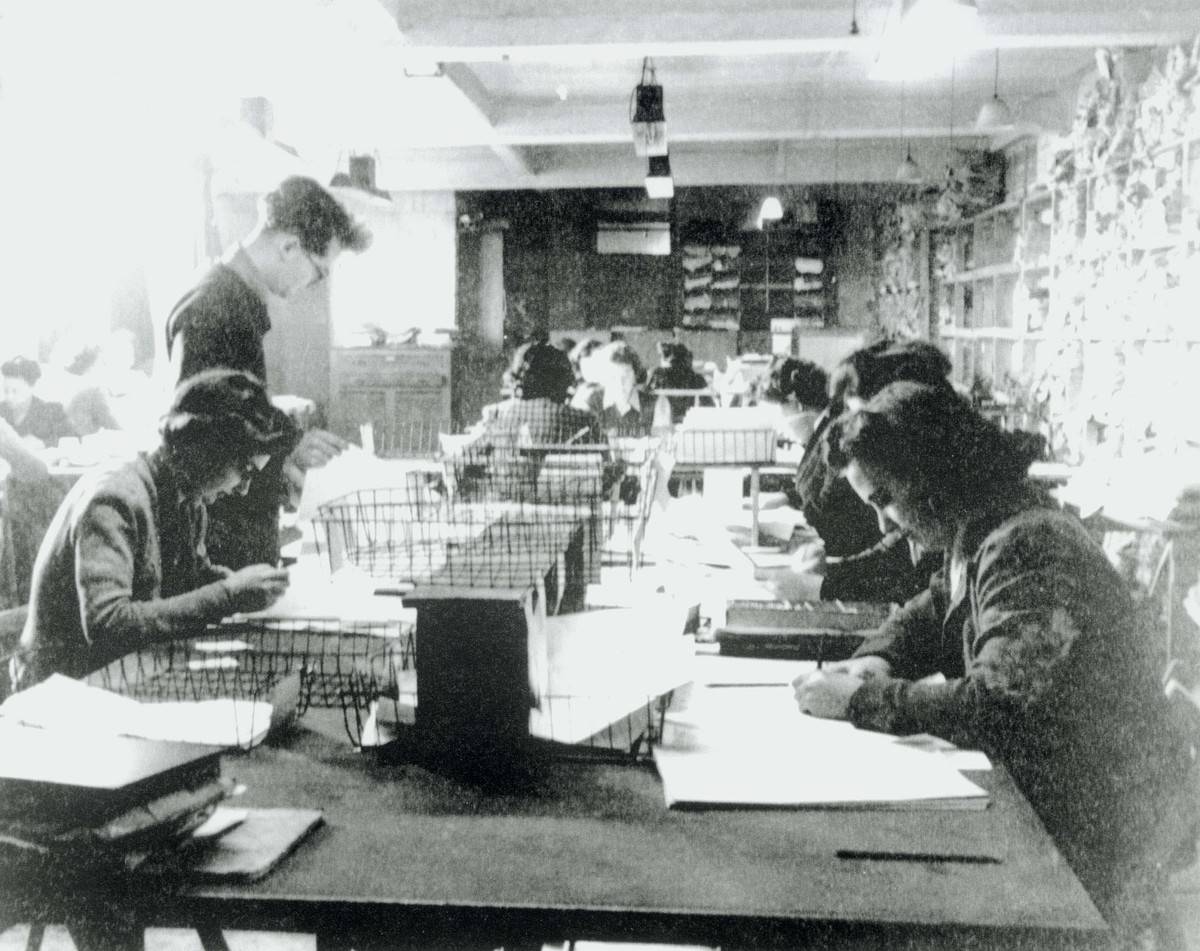
When Hitler and Nazism rose to power, Americans Mildred and Arvid Harnack worked in Germany. Over the years, they had taken a liking to Soviet Communism and made many connections in Russia.
When the war broke out, the Harnacks led an underground espionage ring called The Red Orchestra, sending intelligence reports to their connections in Russia. The Harnacks were eventually found and executed in 1942.
Korean Casualties From Nukes
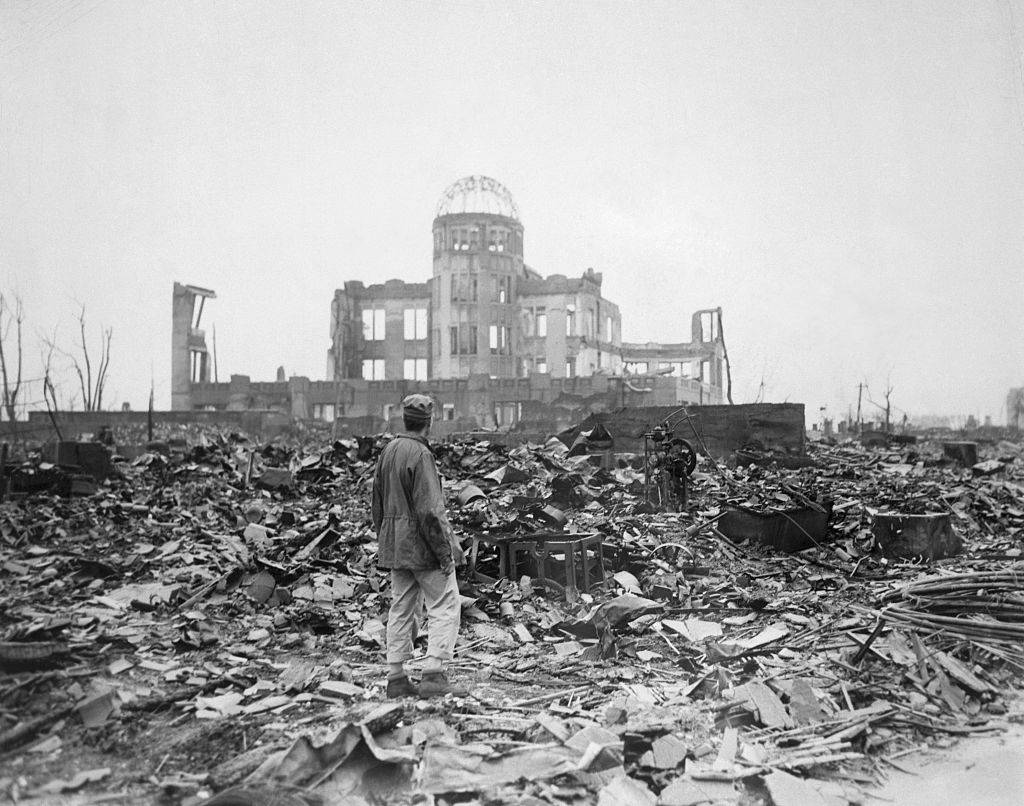
When the United States Dropped the Nuclear Bombs on Nagasaki and Hiroshima, the devastation that Japan felt was unquestionable.
But what some might not know is that there were more than 20,000 South Koreans who perished from the nuclear strikes. These Koreans were believed to be working in Hiroshima at the time of the bombings.
I’ll Have A Liberty Steak With A Side of Liberty Cabbage
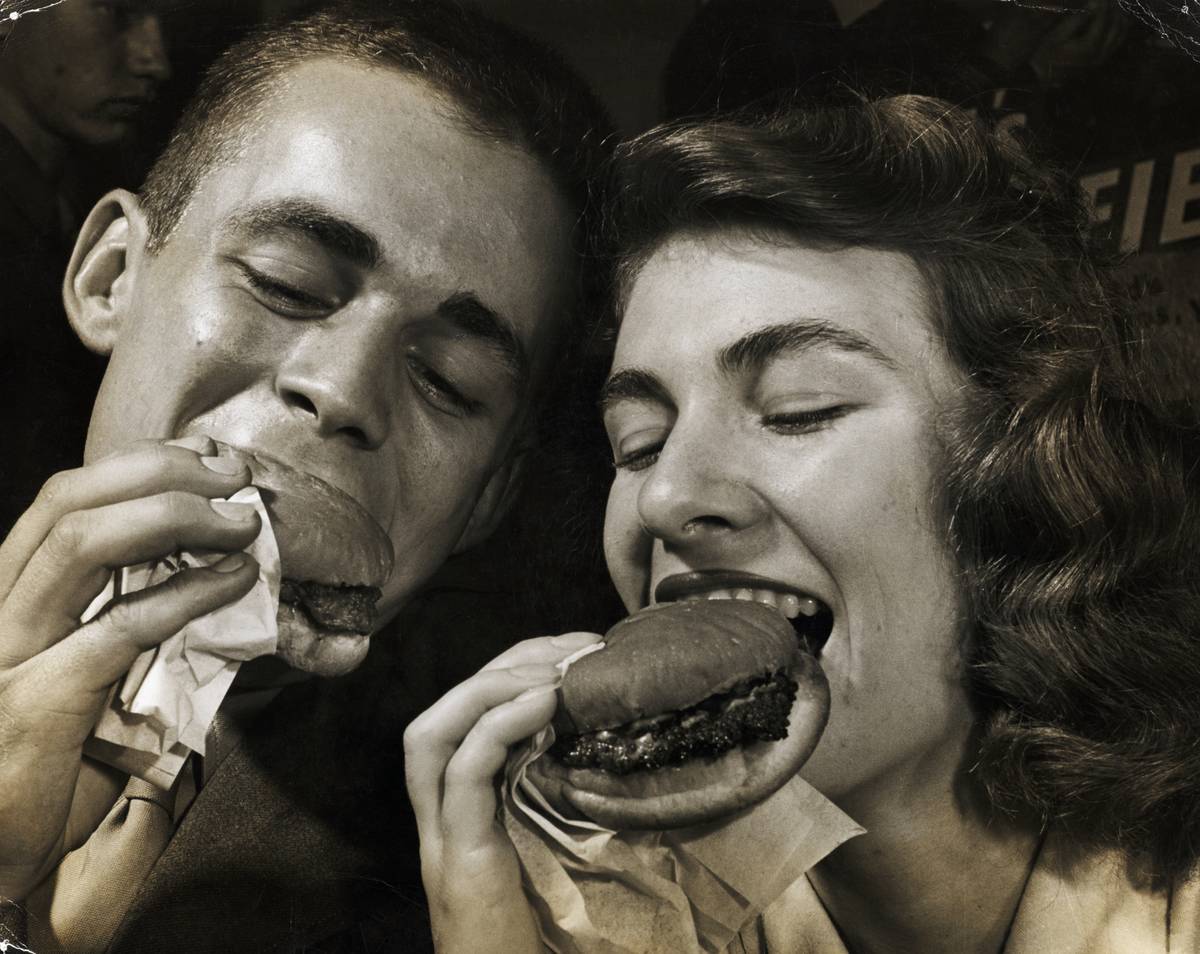
Due to the war, many Americans found some foods “unpatriotic” because they sounded German. So to combat this German propaganda, people came up with new terms to call these foods.
Hamburger and Sauerkraut were both changed to “Liberty Steak” and “Liberty Cabbage,” respectively. American propaganda at its finest, wouldn’t you say?
Stranislawa Leszczyńska, Midwife to Thousands
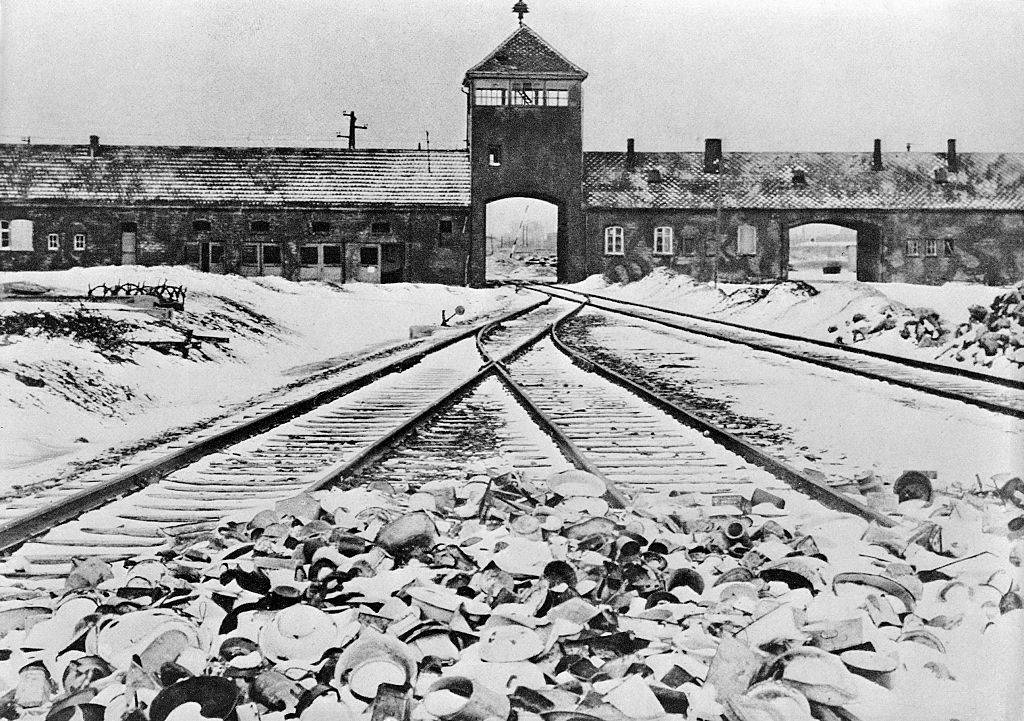
Stranislawa Leszczyńka was a Polish midwife and a prisoner in Auschwitz. She took on the responsibility of delivering 3,000 babies in Auschwitz.
Unfortunately, 2,500 babies did not survive past infancy, and it is estimated that about 30 of them survived when the Allies liberated the camp in 1945.
Aimo Koivunen, The Lost One
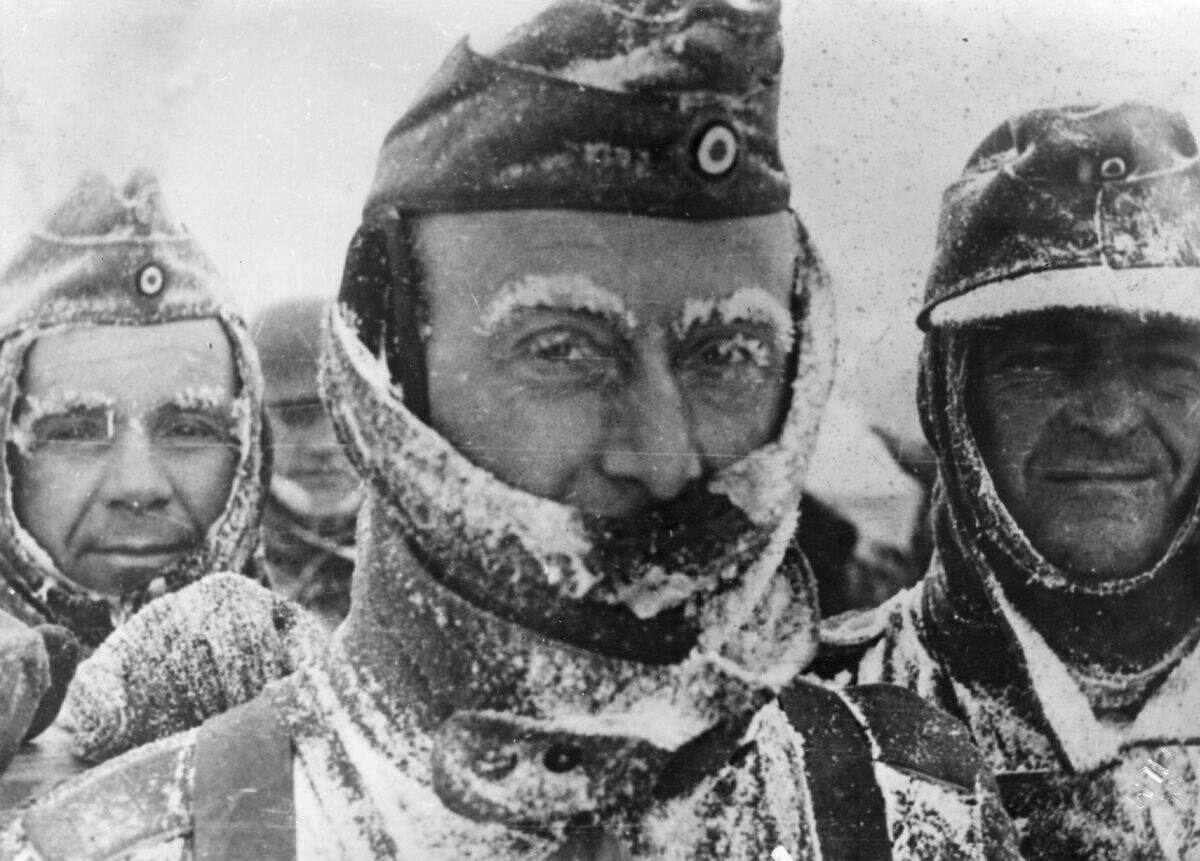
In 1944, Finnish Soldier Aimo Koivunen was on a ski patrol with his squad. They were attacked by Soviet soldiers and were able to escape.
Aimo was carrying the squad’s pervitin (also known as methamphetamine). He was tired from skiing for so long when he took all the doses. He had skied more than 400 km and went missing for a whole week. When he was found and put into a hospital, his heart rate was 200bpm, and he weighed 43kg.





